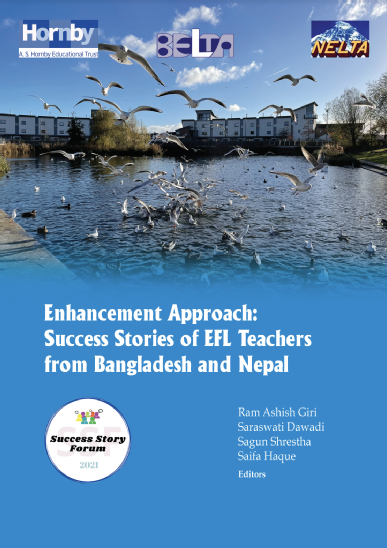Teacher-research for Difficult Circumstances: An 'enhancement' line of approach
Back to overall Teacher-research for Difficult Circumstances project (2016–2018)
'Building on success' / 'Enhancement approach' rationale
Our overall approach to research and teacher development in the area of teaching English in difficult circumstances could be called an 'enhancement approach' - identifying, understanding, building on and disseminating 'good practice' as locally defined rather than starting from a deficit position (Smith, Kuchah and Padwad, in process). The idea of an 'enhancement approach' - as contrasted with a 'deficit model' or 'deficit approach' - emerged in the context of a reading and discussion group facilitated by Richard Smith with active contributions from Mais Ajjan, Harry Kuchah and Anyarat Nattheeraphong when he was supervising all three for their PhDs at Warwick in the early to mid-2010s, and Harry named the approach as such in his thesis (Kuchah 2013). It relates to an approach to research and development in general, not only to teacher-research (the main focus of these pages).
Earlier on, TELC-net, the Teaching English in Large Classes research & development network, set up in 2008 by Richard Smith and Fauzia Shamim, had begun to focus on gathering teachers' narratives of success as well as challenge as its principal research activity (Smith 2011; Smith et al. 2012; Smith 2014). This approach also informed work with undergraduate researcher Rajapriyah Anmpalagan (Anmpalagan and Smith 2013).
As a starting point in workshops, and as a good, positive basis for further teacher-research, the practice of eliciting and having participants present stories of recent success has been implemented and developed in Nepal (see Teaching in the Low-resource Classroom materials referenced below; see also Smith 2014). The Crisis-ELT network began to adopt the same approach. Eliciting stories of recent success also features in the questionnaire developed for 'Teacher Association Research' in Cameroon (Smith and Kuchah 2016).
in 2016 Richard Smith oversaw the production by the British Council of a set of videos with associated reflection tasks for English teachers called Teaching in the Low-resource Classroom: Voices of Experience. The videos and tasks were uploaded to the Council's TeachingEnglish website. They are based on a five-day Hornby Regional Workshop on 'The Low-resource Classroom' co-facilitated with Amol Padwad in Kathmandu, Nepal, in November 2013.
In the videos, which are intended to be useful for teacher training and in-service teacher development, teachers from Bangladesh, India, Nepal and Pakistan share success stories as a basis for further inquiry into issues they face in their low-resource classrooms.
The same stories formed the basis for the following 2017 publication:
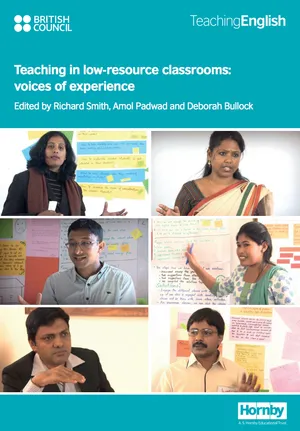
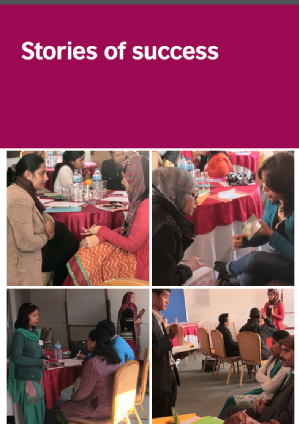
Smith, R., Padwad, A. and Bullock, D. (eds) (2017) Teaching in Low-resource Classrooms: Voices of Experience. London: British Council.
This book is an edited collection of stories of success and of teacher-inquiry. These are authored by members of a group of 34 teachers and teacher educators from Bangladesh, India, Nepal and Pakistan, who came together for a five-day Hornby Regional School in Kathmandu. Based on an ‘enhancement approach’, the materials show that there is particular value for teachers in difficult circumstances in collaboratively sharing examples of successful teaching as a starting point for their own further development. They also show that a useful approach to developing appropriate methodology for such circumstances is teacher research on a basis of initial and ongoing collaborative work.
The book and associated video materials can be used informally by teachers as a stimulus for reflection and
inquiry or for discussion in teacher associations, English teacher clubs or other forms of self-help group.
They can also be used in in-service training workshops. Each individual story is followed by questions for
reflection and discussion to help with these uses. The stories can also be used by teacher educators
in initial teacher training programmes for student teachers who are likely to be teaching in relatively
difficult circumstances.
Reviewed in System, RELC Journal, Innovation in Language Learning and Teaching, EFL Magazine
“There is not nearly enough celebration of teachers' successes, not nearly enough sharing of what they can do, often in the face of very difficult circumstances – instead teachers are much too often blamed, or blame themselves for not doing well enough. Isn't it time we tried a more appropriate and constructive enhancement approach, getting away from deficit models? Of course teachers face many problems, but solutions to those problems don't come easily from the outside – teachers are the ones who know their classrooms, their students, their situations the best, and they need to be helped to have confidence in their own ability to develop appropriate methodology for themselves. Sharing success stories is a good foundation on which to build.
I developed this approach in my own teacher training practice over a number of years and introduced it to Sagun Shrestha and others at a British Council Hornby Regional School in November 2013 in Kathmandu.
[...] I am convinced we can all learn a lot by telling stories of success and by listening carefully to one another's stories. To help with this, as you listen to or tell your stories, I invite you to think especially about why certain experiences were successful and how you can build on those experiences to generate further success’”
Richard Smith (2018)
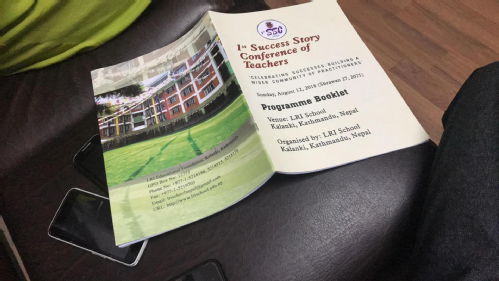
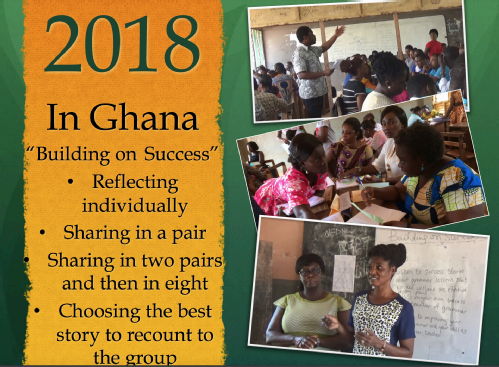
Smith, R. 2011 'Teaching English in difficult circumstances: A new research agenda'. In Pattison, T. (ed.) IATEFL 2010 Harrogate Conference Selections. Canterbury: IATEFL. Pre-publication version hereLink opens in a new windowLink opens in a new windowLink opens in a new window. Associated talk hereLink opens in a new windowLink opens in a new windowLink opens in a new window.
Smith, R., Negash, N., França, V., Wang, Q., Phyak, P., Ajjan, M., Kuchah, H.K., Saleem, M., Sarwar, Z., and Coleman, H. 2012. 'Investigating large classes' (panel discussion). In Pattison, T. (ed.) IATEFL 2011 Brighton Conference Selections. Canterbury: IATEFL. Pre-publication version hereLink opens in a new window. Video from original panel discussion hereLink opens in a new window and handouts/discussionsLink opens in a new window The latter will eventually be taken down from the British Council website, so more permanent links are here: 1Link opens in a new window. 2.Link opens in a new window 3.Link opens in a new window 4.Link opens in a new window 5. Link opens in a new window6. Link opens in a new window(pdf)
Smith, R. 2014. ‘Transformations in ELT: Agents, contexts and opportunities’. In Shrestha, P.N., Dhakal, K.R., Ojha, L.P., Rana, L.B., and Rawal, H. (eds) NELTA Conference Proceedings 2013. Kathmandu, Nepal: Nepal English Language Teachers’ Association, pp. 12-22. Pre-publication versionLink opens in a new window
Smith, R. 2015. 'Teaching English in difficult circumstances: a conversation'. NELTA ELT Forum (July 2015). [The entire issue is devoted to 'Teaching English in difficult circumstances'].
Smith, R. 2018. Unpublished message for the 1st Success Story Conference of Teachers, Kathmandu.
Smith, R. and Kuchah, K. 2016. 'Researching teacher associations' ELT Journal 70/2: 212-221.
Smith, R., Kuchah, K., and Padwad, A. In process. 'Teaching English in difficult circumstances, revisited'.
Smith, R., Padwad, A. and Bullock, D. (eds) (2017) Teaching in Low-resource Classrooms: Voices of Experience. London: British Council.
Smith, R., Eraldemir Tuyan, S, Békés, E.A. & Serra, M. 2021. 'Enhancement mentoring for teacher-research: A positive approach in a crisis'. ELTED Journal 24: 43–61.
Talk by Rajapriyah Anmpalagan and Richard Smith on 'Research large classes: A questionnaire with impact?' at the IATEFL Conference in Liverpool, 10th April 2013.
Featured speaker talk by Richard Smith on 'Teaching English in large classes: An enhancement approach to research and teacher education'. Teacher Educator Conference (TEC) 14, Hyderabad, India, February 2014. Associated interviewLink opens in a new window.
Webinar by Amol Padwad, Prem Phyak and Richard Smith on 'Teacher Education for Difficult and "Super-difficult" Circumstances', IATEFL Teacher Trainers & Educators SIG, October 2015.

